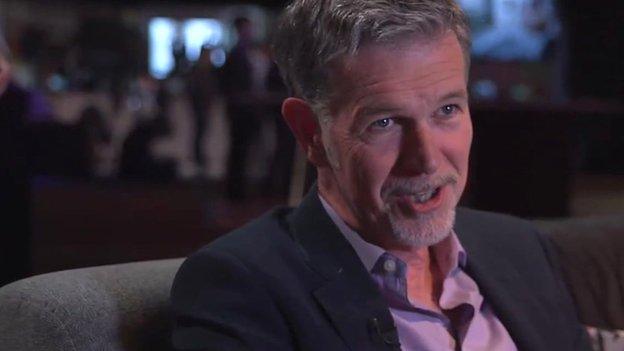Netflix blocked by Indonesia in censorship row
- Published
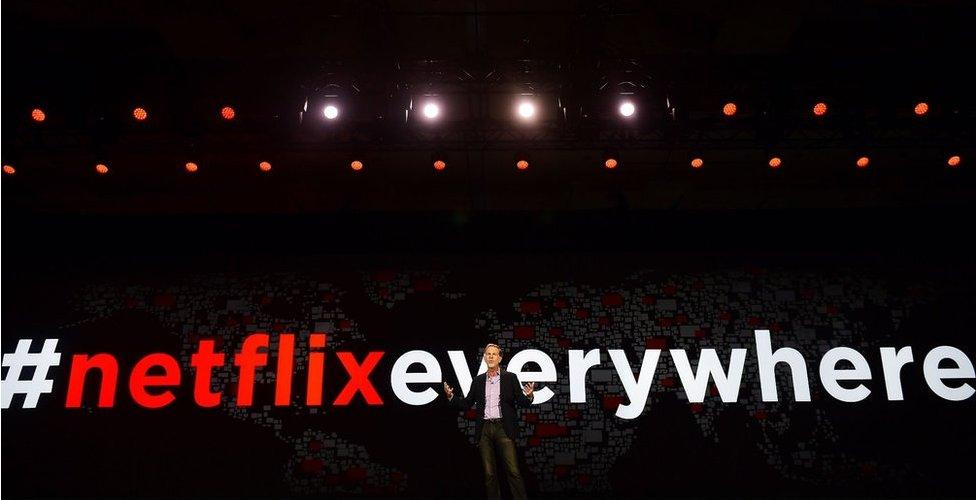
Netflix expanded its service to more than 100 additional countries earlier this month
Netflix has been blocked by Indonesia's biggest internet service provider, upsetting its move into the country.
The state-owned telecoms firm said it had concerns about the content Netflix was offering and accused it of failing to have a necessary business permit.
The US company announced earlier this month that it had added 130 countries, including Indonesia, to its service - taking it almost worldwide.
One expert said the setback had been "inevitable".
Telekom Indonesia said Netflix needed to work with it to ensure objectionable content was removed.
"The issue is about the permit. They don't follow the rules. They also display violence and adult content," the firm's consumer director Dian Rachmawan told the Jakarta Post newspaper, external.
"We must [block it] before things get more complicated and create a serious issue."
The country's government said that it was not behind the move.
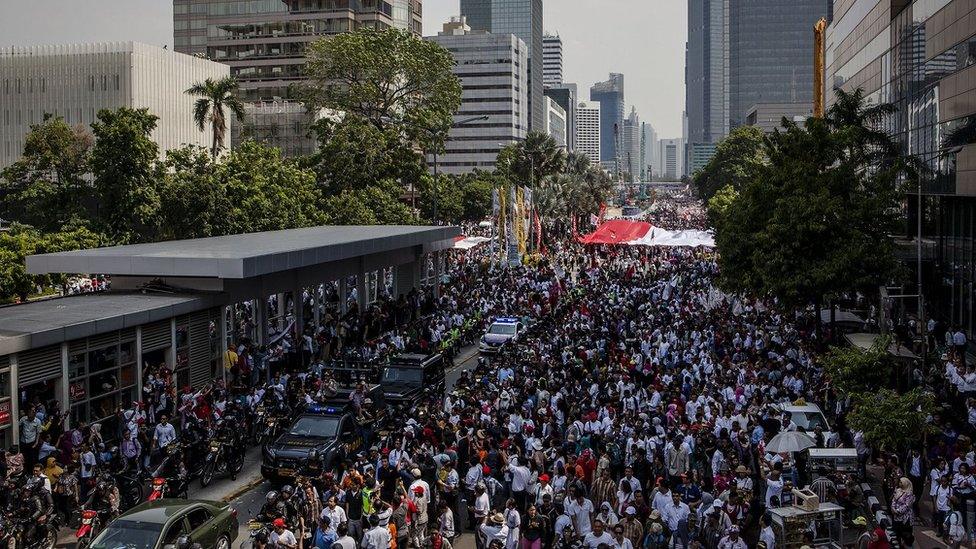
Indonesia is the world's fourth most populated country
"Other internet service providers are still allowing Netflix access. So, it is a pure corporate decision," said communications minister Rudiantara, external.
"[But] it will be difficult for Netflix. You can see for yourself on how much content there is [in Netflix] that must be censored."
Indonesia is one of Asia's most highly populated nations with about 250 million people living amongst its islands. Many of those people, however, would not have fast enough internet access to stream video.
Netflix has not disclosed how it intends to address the issue.
"We've seen these reports too and are looking into it. No further comment," a spokesman told the BBC.
Kenyan threat
Netflix chief Reed Hastings discusses its future with BBC Click's Spencer Kelly
The ban is not the first problem Netflix has faced since making its surprise announcement at the CES tech trade show.
The Kenya Film Classification Board is considering a block of its own saying the platform posed a "threat to our moral values and national security" because it had not submitted it shows for local ratings.
Vietnam's government has also told the service it must obtain an official licence and have its content edited by local censors or it would be in breach of the law.
The disputes will be closely watched in China, where Netflix is still seeking permission to launch.

Analysis: Rebecca Henschke - head of BBC Indonesia
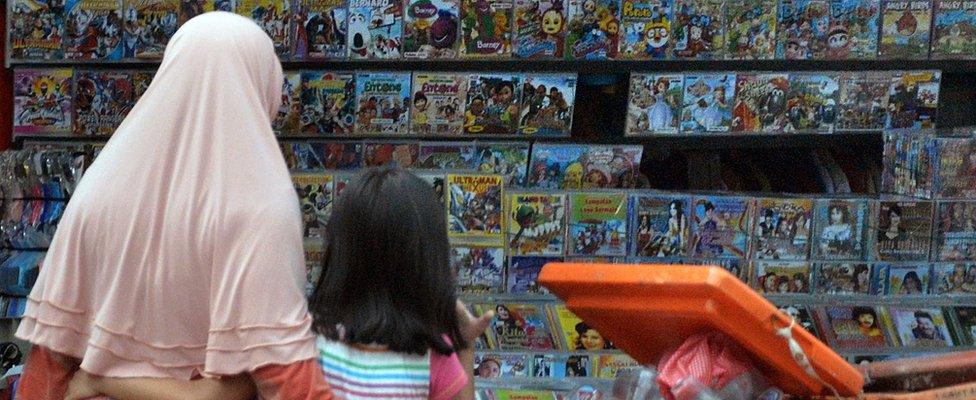
It is relatively easy to find pirate DVDs on sale in Indonesia
Private DVDs of all the latest films and television series are openly for sale in shopping malls and markets across Indonesia. They cost less than $1 (70p). There are occasional raids by the police but mostly authorities turn a blind eye.
So, the idea that the government was concerned about Netfix breaking copyright had been met with cynicism.
However, there is widespread concern in Indonesia about pornography. In 2008, the country passed a controversial anti-pornography bill and websites that the government deems not "healthy" for society are blocked and that includes the popular video clip platform Vimeo.
Indonesia has one of South East Asia's most free presses, but major television stations are controlled by powerful politicians and they are increasingly being used to further their agenda.
The country's censorship board also regularly bans politically sensitive films.
One of those films, the Oscar-nominated documentary The Act of Killing, is on Netfix. It focuses on the perpetrators of the mass killings of suspected communists between 1965 and 1966.
Among Indonesia's growing class in the capital Jakarta - the Twitter capital of the world - there was great excitement about Netflix entering the market.
There is now dismay at efforts to control what they can watch on it.

"This was absolutely inevitable," commented Guy Bisson from the media research firm Ampere Analysis.
"When you are considering a global launch or even a local launch you have to take into account local regulations and politics as well as local morals and customs.
"There have been many incidents in the past where what seems to be an innocuous programme in the West caused problems when shown elsewhere.
"One example was the British quiz show The Weakest Link - it went down very badly in Asia because it was considered incredibly rude how the host spoke to the contestants."
However, Mr Bisson added that this did not necessarily mean Netflix should have rolled out its service more slowly.
"You could argue it should have taken this into consideration," he said.
"But there will always be differences of opinion on local content and other teething problems."
- Published6 January 2016
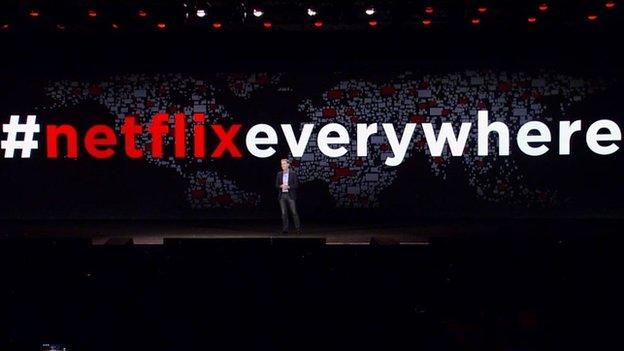
- Published20 January 2016
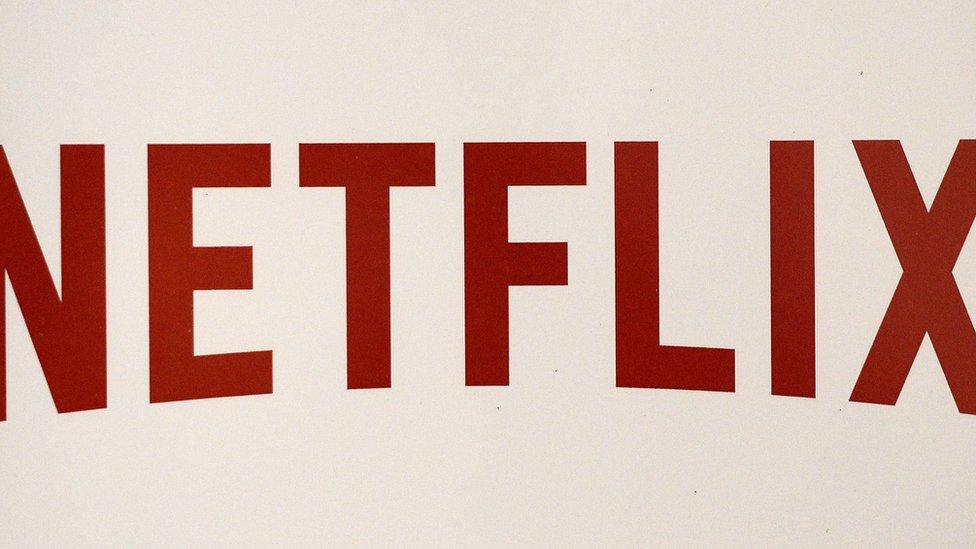
- Published7 January 2016
